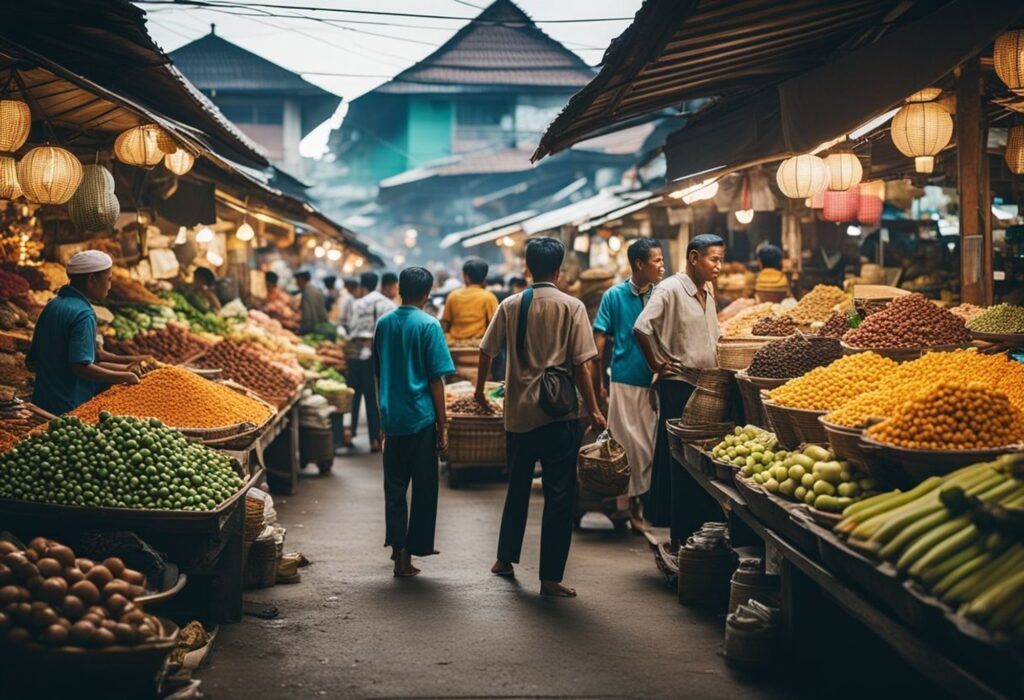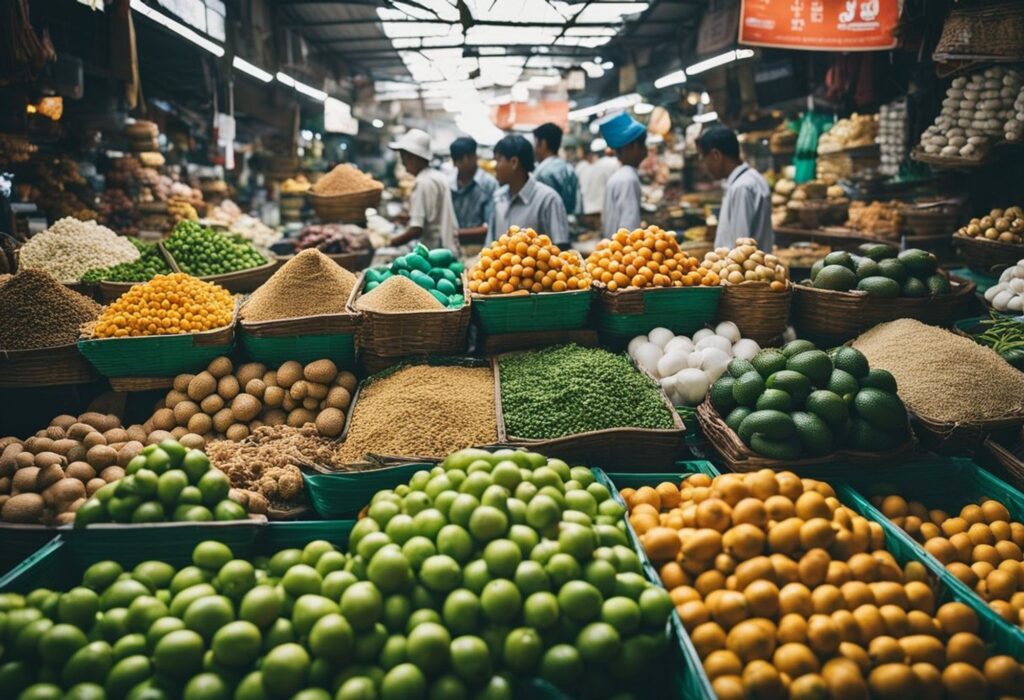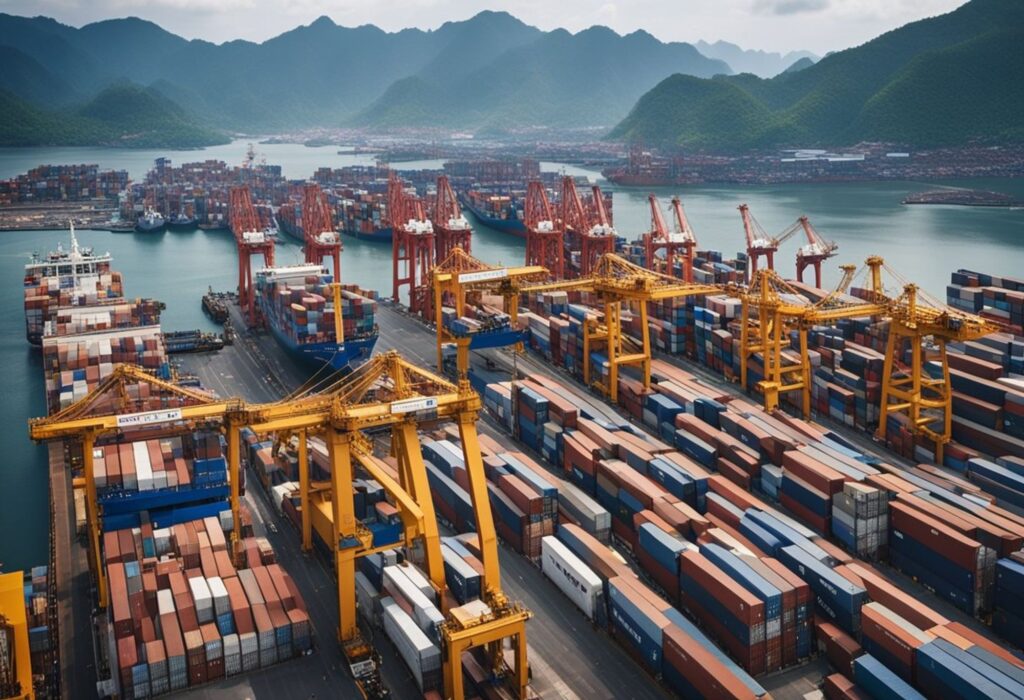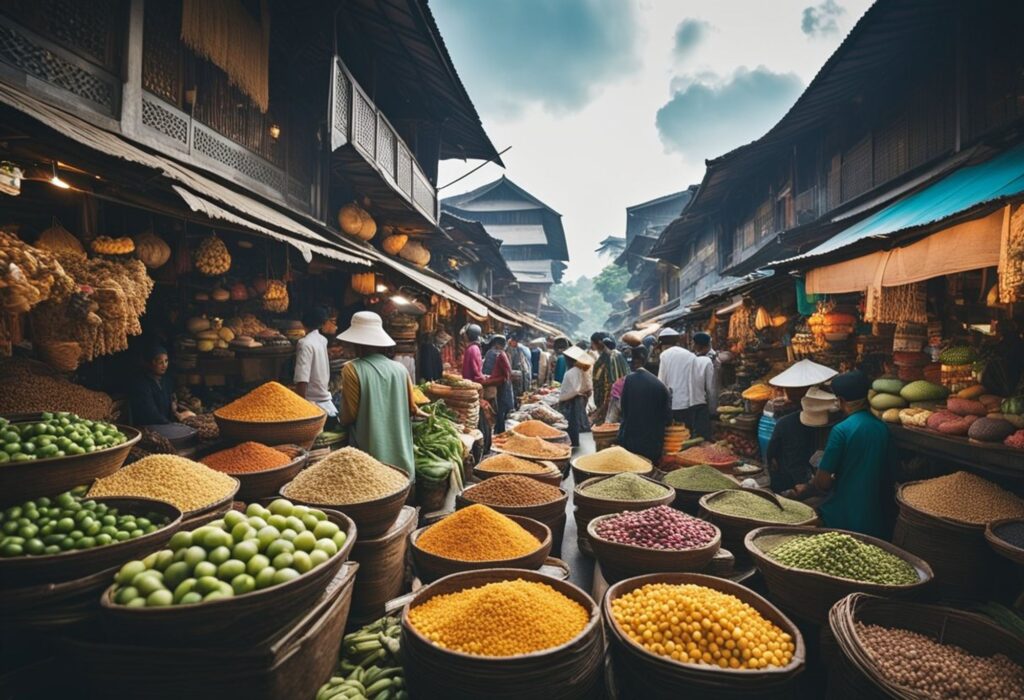Indonesia is a country with a rich culture, vibrant economy, and a population of over 270 million people. It is also home to a diverse range of industries, making it an ideal destination for businesses looking to source high-quality products at competitive prices. However, sourcing from Indonesia can be challenging, especially for those who are unfamiliar with the local market and customs.

To help businesses navigate the complexities of Indonesian sourcing, this article provides an overview of the key strategies and best practices that can be used to improve sourcing outcomes. From understanding the Indonesian market to identifying reliable suppliers, building strong business relationships, and managing logistics and supply chain operations, this article covers all the essential aspects of Indonesian sourcing.
By following these strategies, businesses can boost their operations, reduce costs, and improve the quality of their products. Whether you are a small business owner or a large multinational corporation, these tips will help you succeed in the Indonesian market. So let’s dive in and explore the world of Indonesian sourcing!
Key Takeaways
- Understanding the Indonesian market is essential for successful sourcing.
- Identifying reliable Indonesian suppliers requires careful research and due diligence.
- Building strong business relationships and leveraging local expertise can help mitigate risks and improve sourcing outcomes.
Understanding the Indonesian Market

Indonesia is a promising market for businesses looking to expand their operations. However, to succeed in this market, it is crucial to have a good understanding of the cultural nuances, regulatory landscape, and economic outlook of the country.
Cultural Nuances
Indonesia is a diverse country with over 300 ethnic groups, each with its own unique customs and traditions. Therefore, it is important to be aware of the cultural nuances of the region where you want to do business. For example, Indonesians value personal relationships and trust, so it is important to establish a good relationship with your business partners before conducting any business.
Regulatory Landscape
Indonesia has a complex regulatory landscape, and businesses need to be aware of the various laws and regulations that govern their industry. For example, foreign ownership restrictions apply in certain industries, and businesses need to obtain the necessary permits and licenses before starting operations. Additionally, businesses need to be aware of the tax laws and regulations, which can be complex.
Economic Outlook
Indonesia is the largest economy in Southeast Asia and has a growing middle class with rising disposable income levels. This presents opportunities for businesses to tap into a growing market. However, businesses need to be aware of the challenges in the market, such as infrastructure limitations and a shortage of skilled labor.
In conclusion, understanding the cultural nuances, regulatory landscape, and economic outlook is crucial for businesses looking to succeed in the Indonesian market. By taking these factors into account, businesses can develop effective strategies to optimize their supply chain operations and tap into the growing market.
Identifying Reliable Indonesian Suppliers

When it comes to sourcing products from Indonesia, finding reliable suppliers is crucial for the success of your business. Here are some strategies to help you identify trustworthy Indonesian suppliers.
Supplier Vetting Process
Before partnering with a supplier, it is important to conduct a thorough vetting process. This includes verifying the supplier’s legal registration, checking their financial stability, and ensuring that they have a good reputation in the industry. You can also ask for references and conduct site visits to confirm the supplier’s capabilities.
Trade Shows and Expos
Attending trade shows and expos is a great way to meet potential suppliers and learn about the latest trends in the industry. Some popular trade shows in Indonesia include Manufacturing Indonesia, Food & Hotel Indonesia, and Indonesia International Furniture Expo. These events provide an opportunity to network with suppliers, compare products, and negotiate deals.
Online B2B Marketplaces
Online B2B marketplaces are another way to find reliable Indonesian suppliers. Some popular marketplaces include Madeinindonesia.com, TradeWheel, and Alibaba. These platforms allow you to search for suppliers based on their product offerings, location, and other criteria. It is important to conduct due diligence and verify the supplier’s credentials before making a purchase.
By following these strategies, you can identify reliable Indonesian suppliers and build a strong supply chain for your business.
Building Strong Business Relationships

Indonesia is a relationship-driven culture where trust plays a crucial role in business interactions. Thus, building strong business relationships is essential for any foreign business seeking to succeed in the Indonesian market. This section will discuss communication strategies and negotiation techniques that can help businesses build strong relationships with Indonesian partners.
Communication Strategies
Indonesian business culture places a lot of emphasis on personal relationships, and thus, it is essential to establish a personal connection with Indonesian partners. One way to achieve this is by investing time in small talk before getting down to business. In Indonesia, small talk is an essential part of building relationships, and it is not uncommon for business meetings to start with a discussion of non-work-related topics such as family, hobbies, or sports.
Another communication strategy that can help businesses build strong relationships with Indonesian partners is to show respect for Indonesian culture and customs. This can be achieved by learning a few words of Bahasa Indonesia, the official language of Indonesia, and understanding the basic tenets of Indonesian culture, such as the importance of hierarchy and the concept of “face.”
Negotiation Techniques
Negotiating with Indonesian partners can be challenging, especially for foreign businesses that are not familiar with Indonesian business culture. One essential negotiation technique is to be patient and avoid rushing the process. In Indonesia, negotiations can take longer than in Western cultures, and it is not uncommon for the first few meetings to be focused on building relationships rather than discussing business.
Another important negotiation technique is to be flexible and willing to compromise. In Indonesian culture, it is considered impolite to say no directly, and thus, Indonesian partners may agree to a proposal even if they do not fully support it. Therefore, it is essential to read between the lines and be willing to make concessions to reach a mutually beneficial agreement.
In conclusion, building strong business relationships is critical for foreign businesses seeking to succeed in the Indonesian market. By using communication strategies such as investing time in small talk and showing respect for Indonesian culture and customs, and negotiation techniques such as being patient and flexible, businesses can build trust and establish long-lasting relationships with their Indonesian partners.
Logistics and Supply Chain Management

Shipping and Freight
Indonesia’s location as an archipelago nation presents unique challenges when it comes to shipping and freight. However, the country has made significant strides in improving its logistics infrastructure in recent years. According to Asia Society, the country received US$20 billion of inbound foreign direct investment (FDI) in 2021 versus US$3.9 billion five years earlier, an increase of 412 percent, and real GDP grew by 3.6 percent. This growth is a reflection of the country’s efforts to reform its inbound investment policies to make it a more attractive destination for investors.
To improve the shipping and freight process, businesses can consider partnering with reliable logistics providers with a strong presence in Indonesia. These providers can help navigate the complexities of the country’s logistics infrastructure and ensure timely delivery of goods. Additionally, businesses can also explore the use of technology such as GPS tracking and real-time monitoring to improve visibility and control over their shipments.
Inventory Management
Effective inventory management is crucial for businesses operating in Indonesia’s competitive market. According to a study involving Indonesian manufacturers, companies and supply chain stakeholders can win on the road to Supply Chain 4.0 by being outward-looking and fostering supply chain collaboration with external networks. This requires being technologically ready, flexible, innovative, and efficient in integrating digital business processes. Jakarta Globe
To optimize inventory management, businesses can consider implementing a robust inventory management system that utilizes real-time data and analytics to track inventory levels, forecast demand, and optimize supply chain operations. Additionally, businesses can also explore the use of lean inventory management techniques such as just-in-time (JIT) inventory to minimize waste and reduce costs.
Overall, effective logistics and supply chain management are critical for businesses looking to succeed in Indonesia’s competitive market. By partnering with reliable logistics providers and implementing robust inventory management systems, businesses can streamline their operations and improve their bottom line.
Quality Control and Compliance

Indonesia is a popular sourcing destination for businesses looking to expand their product lines and reduce their production costs. However, ensuring the quality of products sourced from Indonesia is crucial to maintaining customer satisfaction and avoiding costly returns. In this section, we will discuss the quality control and compliance measures that businesses should implement when sourcing products from Indonesia.
Quality Assurance Practices
Quality assurance practices are essential to ensuring the quality of products sourced from Indonesia. These practices include:
- Factory Audits: Conducting factory audits is crucial to ensuring that the factories producing the products meet the required quality standards. Businesses should conduct regular audits to ensure that the factories are complying with the required quality standards.
- In-Process Inspections: In-process inspections are conducted during the production process to identify and solve any problems that may arise. This helps to ensure that the production process is running smoothly and that the final product meets the required quality standards.
- Final Product Inspections: Final product inspections are conducted once the production process is complete to ensure that the final product meets the required quality standards. This helps to ensure that the final product is of the highest quality and that customers are satisfied with their purchase.
Compliance with International Standards
Compliance with international standards is crucial to ensuring that the products sourced from Indonesia meet the required quality standards. Some of the international standards that businesses should consider when sourcing products from Indonesia include:
- ISO 9001: This standard specifies the requirements for a quality management system and helps businesses to ensure that their products meet the required quality standards.
- ASTM International: This organization develops and publishes technical standards for a wide range of products, including textiles, plastics, and electronics. Compliance with these standards helps businesses to ensure that their products meet the required quality standards.
- FDA Regulations: The FDA regulates the safety and quality of food products in the United States. Businesses that source food products from Indonesia should ensure that their products comply with the FDA regulations to avoid costly recalls and legal issues.
In conclusion, implementing quality control and compliance measures is crucial to ensuring the quality of products sourced from Indonesia. By conducting factory audits, in-process inspections, and final product inspections, and complying with international standards, businesses can ensure that their products meet the required quality standards and maintain customer satisfaction.
Leveraging Local Expertise

When it comes to sourcing from Indonesia, leveraging local expertise can be a game-changer for businesses. By working with local agents and trade experts, companies can gain valuable insights into the Indonesian market and culture, and navigate the complexities of doing business in the country more effectively.
Hiring Local Agents
One way to leverage local expertise is by hiring local agents to represent your business in Indonesia. These agents can help you with a variety of tasks, such as finding suppliers, negotiating prices, and arranging logistics. They can also provide valuable cultural and linguistic insights, and help you navigate the local business environment.
When hiring local agents, it is important to choose someone who is reliable, trustworthy, and has a solid understanding of the Indonesian market. You should also make sure that they have a distributor’s license, as this is required by law for companies that want to distribute products in Indonesia.
Consulting with Trade Experts
Another way to leverage local expertise is by consulting with trade experts who have experience doing business in Indonesia. These experts can provide you with valuable insights into the Indonesian market, such as consumer trends, regulatory requirements, and cultural norms.
Trade experts can also help you identify potential suppliers and partners, and provide you with advice on how to negotiate with them effectively. They can also help you navigate the legal and regulatory landscape in Indonesia, and ensure that you are in compliance with all relevant laws and regulations.
Overall, leveraging local expertise is a key strategy for businesses that want to succeed in Indonesia. By working with local agents and trade experts, companies can gain a competitive edge in the Indonesian market, and navigate the complexities of doing business in the country more effectively.
Adapting to Market Trends and Consumer Preferences

To succeed in the Indonesian market, businesses need to adapt to the latest market trends and consumer preferences. This means staying up to date with the latest developments and understanding what Indonesian consumers are looking for.
One of the key trends in the Indonesian market is the shift towards e-commerce. According to a recent survey, 66% of Indonesian consumers prefer to shop online. This presents a huge opportunity for businesses to expand their online presence and reach a wider audience.
Another trend is the increasing demand for pre-packaged and ready-to-eat meals. As busy lifestyles become more common, many consumers are looking for quick and easy meal solutions. Businesses that can offer convenient and healthy meal options are likely to see success in the Indonesian market.
In addition to these trends, businesses also need to be aware of changing consumer preferences. For example, a recent report found that value-seeking consumers are becoming more common in the Indonesian market. This means that businesses need to offer products and services that provide good value for money.
Overall, businesses that can adapt to market trends and consumer preferences are likely to see success in the Indonesian market. By staying up to date with the latest developments and understanding what Indonesian consumers are looking for, businesses can position themselves for long-term growth and success.
Mitigating Risks in Indonesian Sourcing
Sourcing from Indonesia can offer many benefits, such as access to a diverse range of high-quality products and cost-effective manufacturing processes. However, like any business venture, there are risks involved. To ensure a successful sourcing strategy, it is essential to mitigate these risks.
Political Risks
Political instability, government policies, and trade regulations can lead to disruptions in the supply chain. Companies should conduct thorough research on the political climate of Indonesia and stay up-to-date on any changes to regulations or policies that could impact their sourcing operations. Maintaining good relationships with government officials and local partners can also help mitigate these risks.
Economic Risks
Fluctuations in exchange rates, inflation, and economic instability in sourcing countries can affect the cost-effectiveness of global sourcing. To mitigate these risks, companies can consider hedging currencies, diversifying their supplier base, and negotiating long-term contracts with suppliers.
Market Risks
Global sourcing may encounter supplier-related risks, such as supply chain disruptions from natural calamities, political instability, or unexpected occurrences. These interruptions can potentially cause production and delivery delays, directly impacting the business’s financial performance. To mitigate these risks, companies can diversify their supplier base, maintain good relationships with suppliers, and have contingency plans in place.
Quality Risks
Ensuring the quality of products sourced from Indonesia is critical to the success of a sourcing strategy. Companies can mitigate quality risks by conducting thorough due diligence on potential suppliers, setting clear quality standards and expectations, and regularly monitoring and evaluating supplier performance.
In summary, mitigating risks in Indonesian sourcing requires a combination of thorough research, good relationships with suppliers and government officials, diversification of suppliers, contingency planning, and a focus on quality. By implementing these strategies, businesses can maximize the benefits of sourcing from Indonesia while minimizing potential risks.
Frequently Asked Questions
What are the key steps to developing a successful sourcing strategy in Indonesia?
Developing a successful sourcing strategy in Indonesia requires a thorough understanding of the local market and culture. Businesses should conduct extensive research on the products they wish to source, as well as the suppliers and manufacturers in the area. It is essential to establish clear communication channels with potential partners and build strong relationships based on trust and mutual benefit. Additionally, businesses should ensure that they have a solid understanding of the regulatory environment and legal requirements for sourcing in Indonesia.
How can foreign businesses effectively navigate the B2B landscape in Indonesia?
Navigating the B2B landscape in Indonesia requires a deep understanding of the local market and culture. Foreign businesses should work with local partners who have a strong understanding of the market and can provide valuable insights into the business landscape. It is essential to establish clear communication channels with potential partners and build strong relationships based on trust and mutual benefit. Additionally, businesses should ensure that they have a solid understanding of the regulatory environment and legal requirements for doing business in Indonesia.
What products are Indonesia known for that present strong sourcing opportunities?
Indonesia is known for a wide range of products, including textiles, furniture, electronics, and agricultural products. The country is also a major producer of palm oil, rubber, and coffee. Businesses should conduct extensive research to identify the products that present the strongest sourcing opportunities based on their specific needs and goals.
What cultural considerations should businesses account for when sourcing from Indonesian suppliers?
Indonesia has a unique culture that businesses should take into account when sourcing from local suppliers. It is important to establish clear communication channels and build strong relationships based on trust and mutual respect. Additionally, businesses should be aware of local customs and practices, such as the importance of personal relationships and face-to-face meetings.
How does Indonesia’s strategic position in Southeast Asia benefit international trade and sourcing?
Indonesia’s strategic position in Southeast Asia makes it an attractive location for international trade and sourcing. The country is located at the crossroads of major shipping lanes and has a large and growing consumer market. Additionally, Indonesia has a well-developed infrastructure and a favorable business environment, making it an ideal location for businesses looking to expand their operations in the region.
What best practices should businesses follow when establishing partnerships with Indonesian manufacturers?
When establishing partnerships with Indonesian manufacturers, businesses should follow best practices such as conducting due diligence on potential partners, establishing clear communication channels, and building strong relationships based on trust and mutual benefit. Additionally, businesses should ensure that they have a solid understanding of the regulatory environment and legal requirements for doing business in Indonesia.
Boost Your Business with Buyamia’s Indonesian Sourcing Strategies!
Unlock the potential of Indonesian markets with our expert strategies for sourcing top-quality products. Discover reliable suppliers and unique items that will set your business apart. Click here to explore our comprehensive guide and take your business to the next level!

Leave a Reply